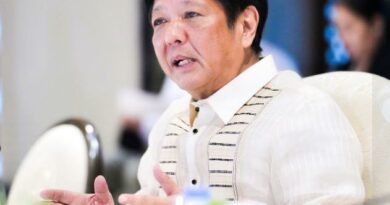DOE, NEDA working on policy for private sector participation in nuclear power
The Philippine government is crafting a policy framework to allow the private sector to participate in the country’s foray into nuclear power generation.
“In the case of the Philippines, the Department of Energy is working with the National Economic and Development Authority (NEDA) on the enabling policy framework for private sector participation in the nuclear power space,” Energy Secretary Raphael Lotilla said at the Asia Pacific Economic Cooperation (APEC) Business Advisory Council (ABAC) virtual roundtable discussion exploring nuclear and emerging technologies on Friday.
President Ferdinand “Bongbong” Marcos Jr. expressed his desire to adopt nuclear energy as part of the country’s power mix, but said the government’s strategy had to be rethought.
“I believe it is time to re-examine our strategy towards building nuclear power plants in the Philippines,” the President said in his first State of the Nation Address (SONA) last year.
The DOE, however, said that the Philippines will have to wait 10 years to see a working nuclear power plant, given the time needed for feasibility studies and other factors.
“Now, our Congress is currently working on the legal and regulatory framework,” Lotilla said.
Last March, the House Nuclear Energy Committee approved a consolidated substitute bill seeking a comprehensive atomic regulatory framework and establishing the Philippine Atomic Regulatory Commission.
“With all these significant undertakings, rest assured that the Department of Energy of the Philippines will participate and initiate the Nuclear Energy and Emerging Technologies Program towards further enrichment in terms of the technical capacities and capabilities that form part of the programs,” the Energy chief said.
During the forum, Aboitiz Group President and CEO Sabin Aboitiz said, “Private sector innovation and capital, coupled with public sector regulatory support and risk management, can drive the growth of nuclear energy.”
“Governments can create enabling policies, such as regulatory streamlining, transition financing, loan guarantees, and market-based incentives that promote nuclear energy and SMRs (small modular reactors). Meanwhile, businesses can provide technical expertise, manage projects effectively, and ensure that they deliver on time and budget,” Aboitiz added.
Lotilla said the government remained steadfast in taking a calculated and scientific approach to tapping nuclear energy as it is “a long-term fuel option for power generation, given its technical and economic viability.” — DVM, GMA Integrated News




